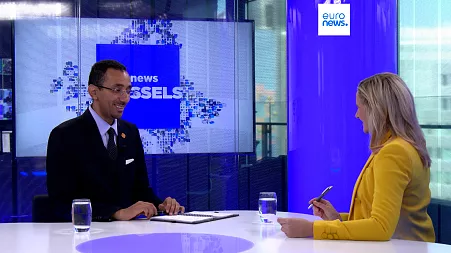
While speculation is mounting about the tax raids that Rachel Reeves will carry out in her maiden Budget, the Treasury is already on course to borrow hundreds of billions of pounds over the next five years.
The deficit this year alone is set to overshoot a target set just six months ago, driven by higher public spending. Britain’s total debt pile is now equal to the size of the economy.
Public borrowing figures on Friday showed the Treasury had borrowed £6.2bn more than forecast by the Office for Budget Responsibility (OBR), the Government’s tax-and-spending watchdog, so far this financial year.
By another measure, things look much worse. Simply looking at how much cash the Government needs to pay its bills, the overshoot is £16.7bn.
This is important because the Treasury uses this metric – known as the “cash requirement” – as the basis for the remit it gives the Debt Management Office (DMO), which is responsible for issuing all the bonds needed to service those needs.
The issuing of gilts, as British government bonds are known, has soared since the pandemic, and is likely to rise even further as the Chancellor attempts to plug what she claims is a £22bn “black hole” left by the Tories.
While Reeves has warned of difficult decisions in her upcoming Budget, any changes will come too late to avoid the necessity of borrowing more.
“Whilst there has been growing attention on the fiscal ‘black hole’ and the potential tax rises that will be required to fill that, we think the market is potentially overstating the extent to which any tax rises will be able to fill a deficit this fiscal year,” Imogen Bachra at NatWest warned in a note to clients.
The Chancellor is unlikely to be able to plug any hole with in-year tax rises or spending cuts, with the former only likely to take effect from next April.
The Government’s ambitions to tap savers for more cash is also likely to fall short.
Back in April, the DMO said it expected households to squirrel an additional £9bn away into NS&I, boosting Government coffers. The latest figures show that savers have only stashed away less than £2bn extra so far this financial year. This figure is likely to be revised down in the Budget.
George Buckley, the chief UK economist at Nomura, says this means the DMO may need to tap the markets for hundreds of billions of pounds this year alone once you include the debt it needs to roll over.
“Depending on the upcoming monthly budget deficit out-turns and how much policy loosening the Government is willing to allow, gilt issuance could be north of £300bn for this fiscal year. The previous budget estimated it would be £277.7bn.”
Three hundred billion pounds of borrowing in an environment of higher borrowing costs, and one where the Bank of England is also selling debt back to the market, presents a challenge.
Inflation-busting public sector pay deals, weaker tax receipts and compensation costs related to the infected blood inquiry and Post Office scandal will all pile further pressure on the public finances, even if some of these one-off deals won’t directly impact the Chancellor’s ability to meet her tax and spending rules.
Sanjay Raja, the chief UK economist at Deutsche Bank, says the increase in cash borrowing has been driven by “a combination of slightly weaker cash receipts, but mostly a bigger pick up in spending, much of which includes the £22bn ‘fiscal hole’ the Chancellor announced late July”.
“We also see the gilt remit – which includes gilts rolled over plus new cash – being revised higher to around £300bn, which would represent one of the largest non-pandemic remits we’ve seen in a fiscal year,” he says.
Both Raja and Buckley believe that cash borrowing and Britain’s debt interest bill will continue to be a drag on the public finances for years to come.
Raja says: “With interest rates higher across the globe, debt servicing costs are very likely to be a headache for any government. Indeed, prior to the pandemic the UK’s debt servicing costs sat at nearer £50bn per year. Now, they have nearly doubled to £100bn.
“Higher interest costs carry big implications for spending and tax plans, especially given that the Chancellor has committed to a current budget balance. Higher interest costs also eat into other more productive spending commitments, such as health and social care, and not to mention, investment.”
Bachra at NatWest believes 10-year benchmark borrowing costs should be closer to 4pc, up from their current level of 3.88pc. This is to reflect the fact that heavily indebted borrowers are inherently a more risky proposition.
For now, demand for UK debt is robust, with an average of 2.78 bids for every bond on offer by the DMO last year, up from 2.39 the year before.
Yael Selfin, the chief UK economist at KPMG, describes appetite for UK gilts as “very healthy”. After all, political instability in both Germany and France, where Emmanuel Macron is due to step down in 2027, alongside uncertainty in the US, has made the UK seem like an island of stability by comparison.
“I believe [strong demand] will continue as long as you have what is perceived to be a plan and a competent Chancellor, especially when you compare us to other countries.”
Raja at Deutsche Bank also describes appetite for UK debt as “very healthy”. He adds: “Importantly, we’re seeing a large increase in appetite from international investors, which should give the DMO and Treasury added confidence in issuing debt.
“Why is appetite so high? Higher yields have made gilts more attractive. There’s also a sense of wider political stability and focus on fiscal discipline that has added to gilt attractiveness.”
However, higher borrowing comes with a wealth warning.
Buckley says Reeves needs to send financial markets a signal that shows she is serious about the public finances if she is to avoid a repeat of the investor revolt following Liz Truss’s mini-Budget. That means tax rises are on the way.
“With Labour having promised to avoid higher income tax, VAT, NICs and corporation tax – representing about three quarters of the annual tax take – CGT and IHT are the most obvious choices left to raise taxes.”
There is also speculation around whether a Labour government wants to encourage more retail investors to hold British debt.
At the moment there is a tax incentive to hold gilts because while individuals are subject to income tax on the interest earned on them, they are exempt from capital gains tax (CGT) when the bonds are sold or mature.
Raja says Reeves must resist any temptation to change this.
“If Labour changes the tax treatment of gilts at the Budget, it could reduce investors’ appetite to own gilts, given increased tax costs. At present, any capital gains from gilts are tax-free. This is something we will be watching very closely.”
Meanwhile, UK debt continues to rise. It is already at 100pc of GDP and could well climb above it in the coming months if public spending keeps climbing.
A recent report by the Lords’ economic affairs committee warned that Reeves must raise taxes or cut back public services to guard against a potential debt crisis.
There is mounting speculation that Reeves will change the current debt rule, which requires debt only to be falling between the fourth and fifth years of the OBR’s forecast, to give her more space to ramp up spending.
Lord Bridges, the chairman of the committee, believes this would be a mistake. “The Chancellor must overhaul the current debt rule – under which debt can be higher in the forecast’s fifth year than in the first,” he says.
“It’s easy to game, and so it does not ensure a falling debt ratio.
“We need instead a rule that has teeth, so ministers are held accountable for putting debt back onto a gradual downward path.”
In the meantime, the debt simply keeps rising.
Disclaimer: The copyright of this article belongs to the original author. Reposting this article is solely for the purpose of information dissemination and does not constitute any investment advice. If there is any infringement, please contact us immediately. We will make corrections or deletions as necessary. Thank you.



